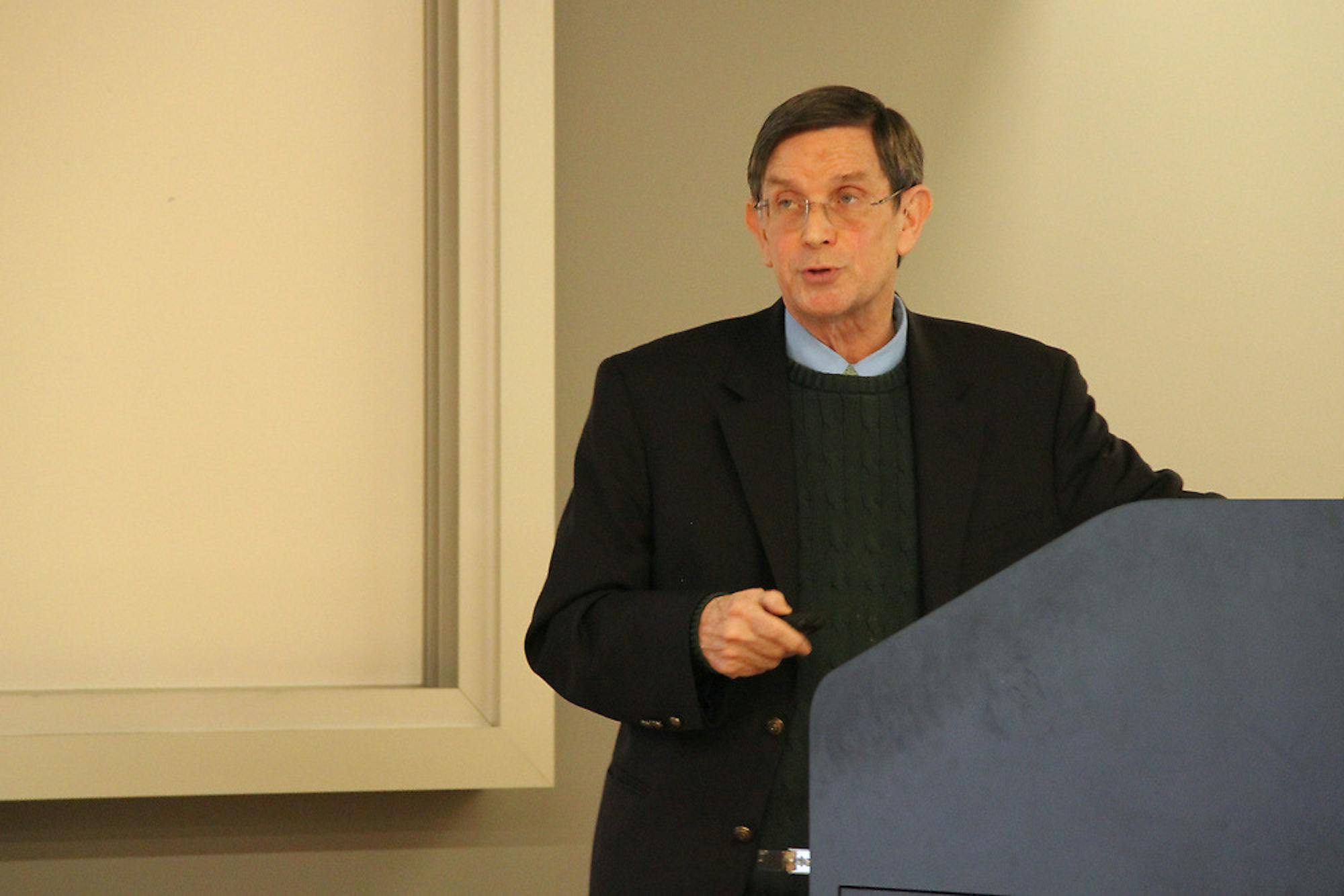Rogers Smith, the Christopher H. Browne Distinguished Professor of Political Science at the University of Pennsylvania, delivered a lecture on feminist history and politics, "Long-After the Suffrage: Gender Differences and the Quest for Citizenship," in Barnum Hall on Friday, Feb. 7.
The event, which was hosted by the Center for Political Thought at Tufts University, a partner program of the Jack Miller Center, facilitated a space for discussing gender disparities and how political perspectives have shifted since the beginning of the feminist movement.
Smith, who attended Michigan State University as an undergraduate, earned his PhD in political science at Harvard University, according to the University of Pennsylvania's website. He served as a professor at Yale University before moving to the University of Pennsylvania, focusing his research on issues such as citizenship and gender within the fields of constitutional law, American political thought and modern legal and political theory.
Political science professors, undergraduate students and Fletcher students gathered to hear Smith discuss the impact that feminism had on policy, going as far back as the earliest feminist leaders.
Malcolm Zuckerman, a history major, viewed the lecture as an opportunity to understand how an expert leverages history to approach policymaking.
"I'm hoping to learn more about ways in which history has repeated itself and how it will affect our future social policy," Zuckerman, a sophomore, said.
Smith was introduced by Tufts political theory professor Robert Devigne, a long-time friend and former graduate student of Smith's. Devigne spoke about the experience of being Smith's student during his few years at Yale.
"[Smith] led a tremendous class—one of the best I'd ever been in," Devigne said. "It focused on different, complicated scholarly and political organizations, and it would not have been possible for class to stay together without Rogers as he helped us see what was valuable, what could be deepened and what we were missing."
In his talk about civic equality, Smith gave a view of how civil rights were won over time, and how that has affected the way policy is created and implemented by modern standards.
"Women activists have done much to shape policy in regard to gender equality, but they have also done so on many diverse points of view," Smith said.
Focusing on intersectional feminism, Smith opened up a conversation on gender politics, exploring the issue through an economic perspective.
"Men and women alike as both consumers and workers envisioned all voters as consumers purchasing favorable policies and cautioned free riding," Smith said.
The students and faculty in attendance were given a visual guide to follow along with legislation and activism that Smith discussed. The visuals presented a history of women and activists that experienced success in the fight for gender equity along with those who challenged their vision.
However, Smith's thesis highlighted that while legislation has been passed, women still experience economic and social disadvantages in comparison to their male counterparts. Smith added that despite legislative changes, women across cultures are perceived as having maternal dispositions which, cross-culturally, have proven to be a setback.
Smith closed his talk by stating that these setbacks are being undone in conjunction with different sects of feminist and activist movements, which work together to realize the legislative changes socially.
Zuckerman said that he had previously wondered about how, despite the passage of legislation, gaps in economic and social outcomes continue to persist.
"The fight has been going on and I was interested to see why there still is not a difference when laws have passed and how society has been trying to mitigate this," Zuckerman said.
The talk ended with a question and answer session in which Smith predicted how he thought the 2020 election and future equal rights legislation would be digested by society, with respect to the recent history of struggles for equality.
"Although the struggles of the past century have created indisputable [progress], we still long for gender equality and equal citizenship in America," Smith said.
Smith lectures on gender, equal citizenship 100 years after women's suffrage

Rogers Smith, Professor of Political Science at University of Pennsylvania and scholar of Constitutional Law, American Politics and Citizenship, speaks on “Long After Suffrage: Gender Differences and the Quest for Equal Citizenship” at an event hosted by Tufts Center of Political Thought in Barnum Hall on Feb. 7.





